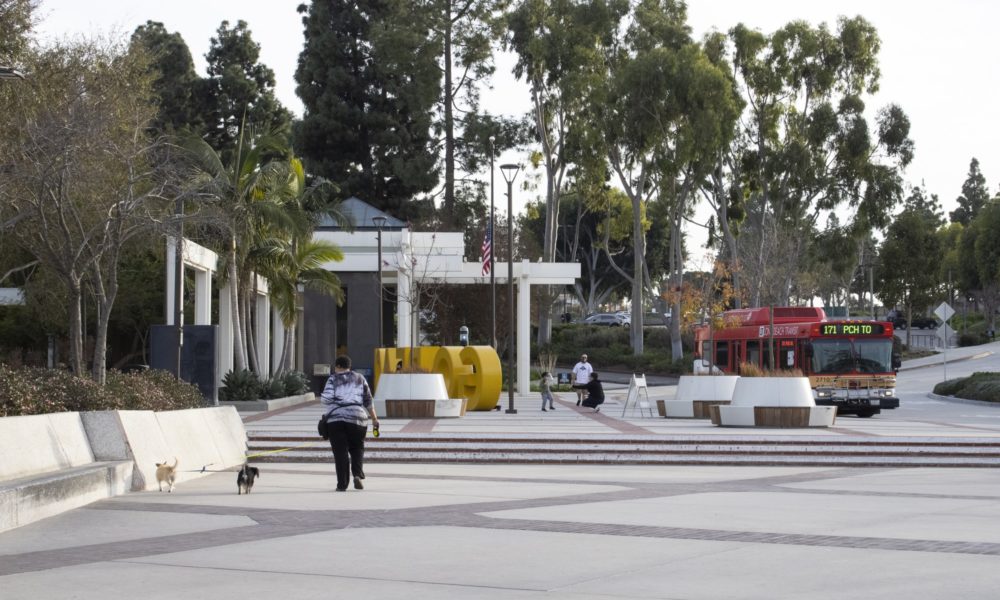Long Beach State is looking to reduce its carbon footprint by increasing eco-friendly modes of transportation on and around campus, Associated Students, Inc. Senate discussed during its meeting last week.
The program, known as RIDE, allows students to find sustainable alternatives to traditional methods of transportation and looks to provide access to said alternatives to the Beach community.
According to Kayla Jolly, RIDE’s sustainable transportation coordinator, the program is looking for CSULB to ultimately reach carbon neutrality, or net zero carbon dioxide emissions, by 2040, as well as to increase carpooling among commuter students.
“Our overarching goal, and our ‘North Star,’ is carbon neutrality for the campus by 2040,” Jolly said. “And to achieve that, it’s basically creating new programs that incentivize sustainable travel and marketing our current programs.”
According to the program’s website, CSULB is looking to “decrease the number of drive-alone commutes to campus” and “accommodate a growing demand for parking on campus” as commutes make up 62% of the university’s greenhouse gas emissions.
“It is our goal to reduce student stress and reduce their need to purchase a parking permit by providing quality sustainable transportation options to campus that improve their physical and mental health while also improving air quality and campus sustainability,” the website reads.
RIDE was initially created in 2015, according to Jolly, and since then members of the program have been “making a concerted effort to create programs or communicate available incentives” at CSULB. The program operates through a “collaboration” of ideas, Jolly said, among different CSU campuses to establish environmentally friendly alternatives for students to travel to class.
According to Chad Keller, RIDE’s digital content specialist for parking and operations, the program works alongside the Office of Sustainability and Beach Building Services.
“But as much any other department is connected with the other departments, we’re all kinda working together on the same campus,” Keller said. “Our projects will overlap every now and then.”
Some of these projects include Beach Building Services’ construction of new bike lanes and Fix-It Repair stations on campus, Keller said.
However, due to the COVID-19 pandemic, some of these alternate modes of transportation have been temporarily unavailable as a health and safety precaution.
“Given the transition to primarily remote learning, a lot of the mode uses you would see on our website have just stopped, naturally,” Jolly said. “The carpool platform was still available, but recently there was a notice to request the discontinuation of carpool due to social distancing concerns.”
Several green alternative methods of transportation have been rendered inaccessible at this time, including bicycles from the city’s Bikeshare program and the campus Zipcars, which have been temporarily removed from campus until further notice.
As the university begins its process of distributing COVID-19 vaccinations, Keller said he is looking forward to returning to campus and for sustainable methods of transportation to become usable again.
“There’s been certain modes that have just been affected naturally, based on state and local guidelines,” he said. “But we expect, once things start to open up again, those modes will come back as soon as it’s considered safe to do so.”
Along with resuming its services, RIDE is looking to continue working toward its primary goal of carbon neutrality.
“We hope to increase the awareness of all the programs we have available, so that we can get closer and closer to our goal every year,” Keller said. “But not only just the awareness of the programs, but also how they benefit students and improve student life.”




